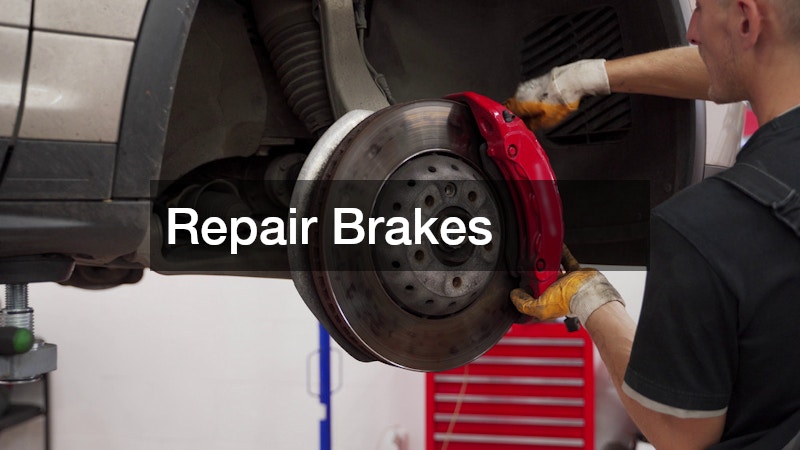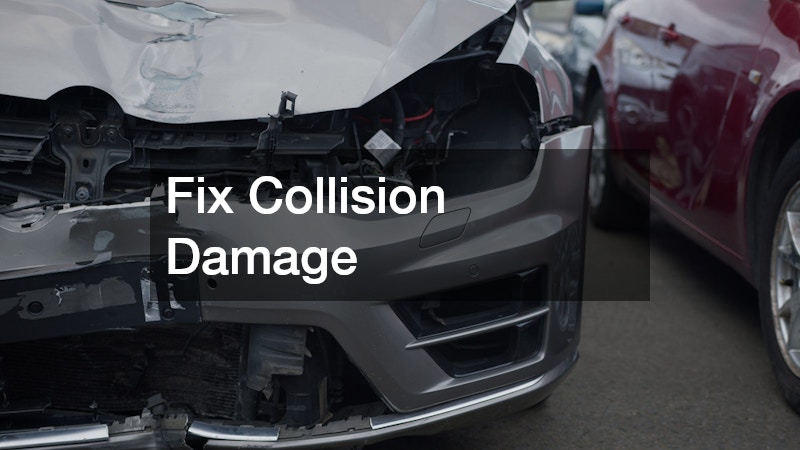Mechanics play a vital role in keeping vehicles running smoothly, safely, and efficiently. From routine maintenance to complex repairs, their expertise touches nearly every aspect of vehicle care. Many car owners face problems with cars ranging from minor annoyances like squeaky brakes or flickering lights to major malfunctions such as engine failures or transmission breakdowns. Understanding the essential roles mechanics play can help vehicle owners make informed decisions, prevent costly repairs, and extend the lifespan of their vehicles.
Diesel truck mechanics, for instance, specialise in maintaining and repairing heavy-duty vehicles that require precise knowledge of engines, fuel systems, and industrial standards. Their work ensures that commercial and personal trucks operate safely and reliably, often preventing problems with cars before they escalate into serious breakdowns. Similarly, services like windshield replacement not only restore visibility but also maintain structural integrity, reducing the risk of accidents caused by impaired vision. These services highlight the proactive role mechanics play in keeping drivers and passengers safe.
Other areas of vehicle care, such as timing belt replacements and brake repair, address both performance and safety. A worn timing belt or faulty brakes can lead to serious mechanical failures or accidents, emphasizing the importance of timely maintenance. Additionally, cosmetic or comfort-oriented services like car tinting improve the driving experience while contributing to vehicle longevity by reducing interior heat and UV exposure. Welding contractors and industrial gas suppliers support more specialized repairs and industrial-grade vehicle work, ensuring structural repairs and gas-dependent systems function correctly.
Mechanics also handle collision repairs, fuel delivery, and electrical services, bridging the gap between emergency interventions and routine upkeep. Collision repairs restore vehicles after accidents, fuel delivery ensures continuous operation, and electrical services resolve increasingly complex electronic issues in modern cars. Collectively, these roles demonstrate that mechanics are not just problem-solvers; they are essential partners in vehicle health, safety, and performance. Understanding these services can help car owners address issues with vehicles more efficiently and maintain optimal vehicle function.
In this article, we will explore ten key areas where mechanics make a significant impact, highlighting both general and specific aspects of their work. From diesel truck mechanics to electrical services, each section will reveal how professional expertise protects, repairs, and enhances vehicles in ways that prevent ongoing problems with cars.
Trust Diesel Mechanics
Diesel truck mechanics are crucial in maintaining the performance and longevity of heavy-duty vehicles. Unlike standard cars, diesel trucks operate under extreme conditions and carry substantial loads, meaning any mechanical failure can lead to significant downtime or safety risks. Mechanics in this field are trained to identify and resolve issues before they become major defects with cars or trucks. Regular inspections, engine tune-ups, and fuel system checks help ensure that these vehicles continue to perform optimally.
Specifically, diesel truck mechanics focus on the engine, transmission, and exhaust systems, areas prone to wear due to high mileage and demanding workloads. For example, detecting early signs of fuel injector wear or turbocharger issues can prevent engine failures that would otherwise lead to costly repairs. Their expertise not only keeps vehicles moving but also safeguards the surrounding environment by maintaining proper emissions standards. When truck operators encounter problems with cars like stalling, reduced fuel efficiency, or unusual engine noises, diesel truck mechanics are the first line of defense.
Replace Windshields

Windshield replacement is more than a cosmetic service; it’s a critical safety measure that protects drivers and passengers. Cracked or chipped windshields compromise structural integrity and visibility, increasing the likelihood of accidents. Mechanics and auto glass specialists perform windshield replacement to restore safety, prevent further damage, and enhance overall driving confidence. Regular inspections can detect minor cracks before they expand, saving time and money while reducing potential issues with vehicles caused by impaired vision.
On a more detailed level, windshield replacement involves assessing the severity of damage, removing the damaged glass, and properly sealing the new windshield to maintain vehicle integrity. Mechanics must ensure proper alignment and bonding to comply with safety standards. Neglecting a cracked windshield can lead to further issues, such as leaks, reduced cabin pressure, or failed safety inspections. Skilled technicians mitigate these risks, resolving defects in cars caused by compromised glass and restoring vehicles to peak safety standards.
Change Timing Belts
Timing belt replacements are essential to maintaining engine health and preventing catastrophic failures. The timing belt synchronizes the camshaft and crankshaft, ensuring that valves open and close at the correct times. A worn or broken timing belt can result in severe engine damage, leading to costly repairs and unexpected setbacks with transportation. Regular replacement according to manufacturer guidelines is a preventative measure that every vehicle owner should prioritise.
Specifically, timing belt replacements involve removing covers, aligning timing marks, and installing a new belt while inspecting related components such as tensioners and pulleys. Mechanics must be precise, as improper installation can cause engine misfires or even complete failure. Drivers often notice early warning signs like unusual engine noises, rough idling, or difficulty starting, all of which indicate impending timing belt issues. Addressing these problems with cars proactively prevents major breakdowns and maintains reliable engine performance.
Repair Brakes

Brake repair is one of the most critical aspects of vehicle safety. Mechanics routinely inspect and maintain braking systems to ensure vehicles can stop effectively in any driving condition. Worn pads, leaking lines, or malfunctioning calipers not only compromise safety but also lead to issues with vehicles, such as reduced control, increased stopping distances, and uneven wear on tires. Regular maintenance and timely repairs prevent accidents and maintain driver confidence.
In a more specific sense, brake repair involves replacing worn pads, resurfacing rotors, checking fluid levels, and inspecting ABS systems. Mechanics also address issues like squealing or grinding noises, which are early indicators of system failure. Ignoring these warning signs can result in complete brake failure, putting drivers and passengers at risk. Skilled brake repair technicians solve problems with cars before they escalate, ensuring vehicles maintain proper stopping power and overall roadworthiness.
Tint Your Car
Car tinting enhances comfort, privacy, and interior longevity while protecting occupants from harmful UV rays. Mechanics or specialized technicians apply high-quality films that reduce glare, heat, and sun damage. While often seen as a cosmetic service, car tinting also contributes to vehicle safety by minimizing distractions caused by sunlight and improving driving visibility. It can also prevent problems with cars related to interior fading or cracked dashboards due to prolonged sun exposure.
Specifically, car tinting involves cleaning windows, precisely cutting films, and carefully applying them without bubbles or wrinkles. Skilled technicians consider factors such as legal tint limits and heat-reducing capabilities. Properly applied tints not only enhance aesthetics but also reduce the strain on air conditioning systems, improve fuel efficiency, and extend the life of upholstery. By addressing both comfort and protection, car tinting is a preventative measure that contributes to overall vehicle care.
Rely on Welding

Welding contractors provide essential support for structural repairs, custom modifications, and frame restoration. Their work is critical when vehicles suffer from collisions, rust, or wear that compromise structural integrity. Without skilled welding, problems with cars can escalate, leading to safety hazards or mechanical failures. Mechanics often collaborate with welding contractors to restore frames, repair chassis damage, or reinforce key components, ensuring vehicles remain safe and durable.
On a more detailed level, welding work involves cutting, shaping, and joining metal components with precision to meet safety standards. Techniques such as MIG, TIG, and arc welding are employed depending on the material and repair type. For instance, restoring a corroded frame on an older vehicle requires careful welding to maintain alignment and prevent further stress on the suspension. Welding contractors solve specific issues with vehicles related to structural damage, allowing mechanics to provide comprehensive vehicle care.
Use Industrial Gas
Industrial gas suppliers play a vital role in vehicle maintenance by providing gases such as oxygen, acetylene, and argon used in welding, cutting, and other mechanical processes. Access to high-quality gases ensures that repairs are precise and safe, reducing risks associated with faulty or low-grade materials. These suppliers support workshops in preventing defects with cars by enabling mechanics to perform advanced repairs, custom fabrication, and metal treatments effectively.
Specifically, industrial gas suppliers provide delivery, storage, and safety guidance for gases used in automotive repair. Mechanics rely on these gases for tasks such as welding, brazing, and cleaning components without causing contamination or structural weakness. For example, proper oxygen-acetylene equipment enables accurate metal cutting and welding for collision repairs. By partnering with trusted suppliers, mechanics minimize potential setbacks with transportation caused by poor-quality work or improper gas usage.
Fix Collision Damage

Collision repairs restore vehicles to their pre-accident condition, addressing both structural and cosmetic damage. Mechanics assess the extent of damage, replace or repair affected components, and ensure vehicles meet safety standards. Timely collision repairs prevent secondary problems with cars, such as frame misalignment, water leaks, or compromised safety systems. These services are essential not only for aesthetics but also for long-term performance and safety.
On a more detailed level, collision repairs involve frame straightening, panel replacement, paint matching, and mechanical system checks. Skilled technicians identify hidden damage that may not be visible externally, such as bent suspension components or misaligned steering systems. Addressing these issues early prevents ongoing defects with cars and ensures that the vehicle operates safely and reliably. Advanced tools, precise measurements, and expert knowledge combine to restore both appearance and functionality.
Deliver Fuel Fast
Fuel delivery services are essential for vehicles that require uninterrupted operation, such as commercial fleets and emergency vehicles. Mechanics often coordinate with fuel providers to ensure that vehicles have consistent access to high-quality fuel, reducing downtime and preventing problems with cars related to engine performance, contamination, or operational delays. Prompt delivery keeps vehicles running efficiently and avoids costly interruptions.
Specifically, fuel delivery involves providing the correct fuel type, monitoring supply levels, and addressing any fuel-related system issues. Drivers experiencing issues with vehicles such as stalling, rough idling, or poor acceleration often benefit from high-quality fuel and maintenance checks. By ensuring timely fuel delivery, mechanics and suppliers prevent minor issues from escalating into major mechanical failures, maintaining vehicle reliability across diverse operations.
Solve Electrical Issues
Electrical services address the growing complexity of modern vehicle systems, from engine management and infotainment to advanced driver assistance systems. Mechanics who specialise in electrical services diagnose faults, replace damaged wiring, and restore system functionality, preventing defects with cars that can arise from battery issues, short circuits, or sensor malfunctions. Proper electrical maintenance ensures that vehicles remain safe, efficient, and fully operational.
On a more specific level, electrical services involve testing circuits, repairing or replacing alternators, starters, and sensors, and updating software when necessary. Drivers often notice early signs of electrical problems, such as dim lights, warning indicators, or malfunctioning accessories. Skilled technicians identify root causes and implement precise solutions, preventing further defects with cars and ensuring that every system—from lights to complex onboard electronics—performs reliably.
Mechanics play an indispensable role in vehicle care, bridging the gap between routine maintenance and complex repairs. From diesel truck mechanics maintaining heavy-duty vehicles to specialists handling collision repairs, every aspect of their work addresses potential problems with cars and safeguards performance, safety, and reliability. Services such as windshield replacement, timing belt replacements, brake repair, and car tinting demonstrate that vehicle care is both preventive and corrective, ensuring that small issues do not escalate into costly failures.
Welding contractors and industrial gas suppliers provide the tools and expertise necessary for structural repairs and advanced mechanical work, while fuel delivery and electrical services ensure continuous operation and system integrity. Collectively, these services reveal that professional mechanics are not just repair technicians—they are essential partners in preserving vehicle longevity, protecting drivers, and maintaining optimal function. Addressing defects with cars early through these diverse services prevents unexpected breakdowns and ensures that vehicles perform at their best under all conditions.
By understanding the critical roles mechanics play—from everyday maintenance to highly specialised interventions—vehicle owners can make informed decisions, extend the life of their cars, and enjoy safer, more reliable journeys. Whether it’s relying on diesel truck mechanics, scheduling a timing belt replacement, or calling in experts for collision repairs, the expertise offered by professionals covers every facet of vehicle care. A closer look at the essential roles mechanics play in vehicle care clearly highlights their importance in solving problems with cars, ensuring safety, and preserving the investment that vehicles represent.
